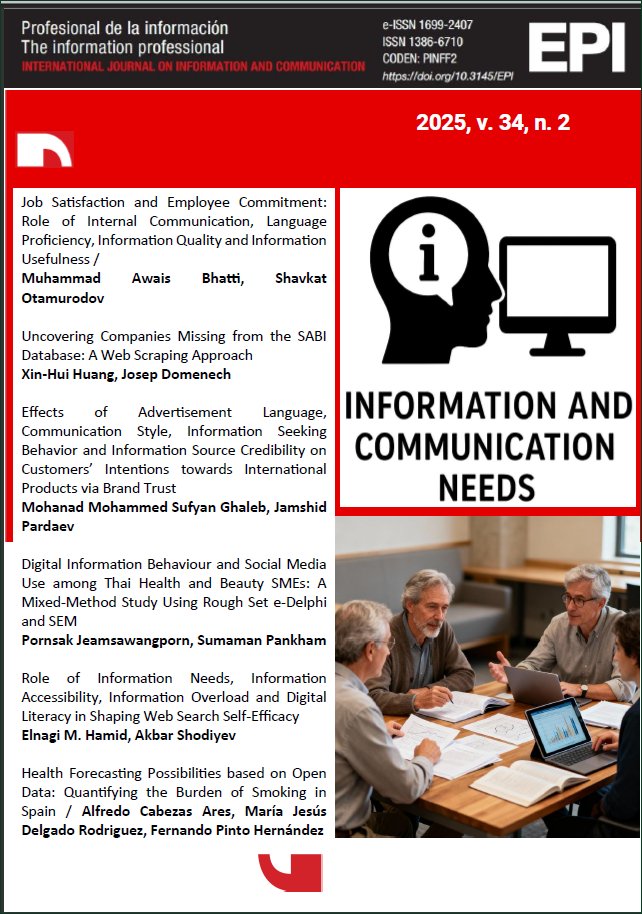Role of Information Needs, Information Accessibility, Information Overload and Digital Literacy in Shaping Web Search Self-Efficacy
DOI:
https://doi.org/10.3145/epi.2025.ene.34205Keywords:
Web Search Self-efficacy, Information Needs Assessment, Information Overload, Digital Literacy, Organizational Information BehaviorAbstract
The present research investigates information needs assessment, perceived information accessibility, information overload, and electronic information literacy as antecedents to web search self-efficacy of organizational employees. It seeks to present a detailed picture of the psychological and informational factors that affect employees' self-assurance in web searching digital information environments. A quantitative method was employed, utilising data from 244 workers across various organisations. Highly reliable measurement scales from prior literature were used in measuring five primary constructs. Structural Equation Modelling (SEM) was executed with the help of STATA to test the measurement and structural models, measure relationships, and verify the significance of every hypothesised path. The results indicate that both information needs assessment and perceived information accessibility significantly influence web search self-efficacy. Further, information overload was found to be a partial mediator of the relationship between perceived information accessibility and web search self-efficacy. In contrast, electronic information literacy enhanced the relationship between information needs assessment and self-efficacy significantly. All the hypotheses put forward were statistically confirmed, emphasising the intricate but interrelated routes via which digital competence and information quality influence individual web-based information task confidence. This study enriches theoretical models of digital behaviour by incorporating cognitive overload and literacy mechanisms, and provides practical implications for designing interventions to develop employees' digital search competence.
Downloads
Downloads
Published
How to Cite
Issue
Section
License
Copyright (c) 2025 Profesional de la información

This work is licensed under a Creative Commons Attribution 4.0 International License.
Dissemination conditions of the articles once they are published
Authors can freely disseminate their articles on websites, social networks and repositories
However, the following conditions must be respected:
- Only the editorial version should be made public. Please do not publish preprints, postprints or proofs.
- Along with this copy, a specific mention of the publication in which the text has appeared must be included, also adding a clickable link to the URL: http://www.profesionaldelainformacion.com
- Only the final editorial version should be made public. Please do not publish preprints, postprints or proofs.
- Along with that copy, a specific mention of the publication in which the text has appeared must be included, also adding a clickable link to the URL: http://revista.profesionaldelainformacion.com
Profesional de la información journal offers the articles in open access with a Creative Commons BY license.




